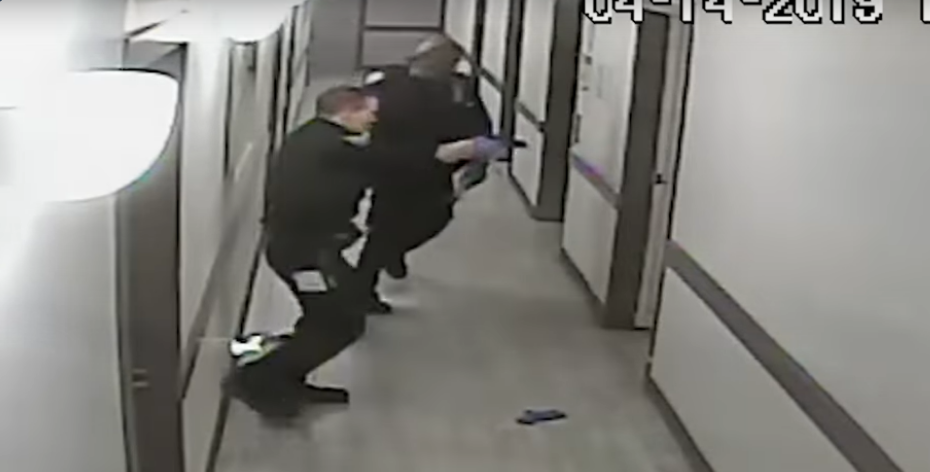Sam Kutesa– does ENHAS, company he founded, operate like Halliburton of East and Central Africa?
[Publisher’s Commentary]
New Conflict Of Interest Questions; In Earlier Case, Kutesa Said To Threaten Life of Witness
A private company in which the presumptive new President of the United Nations General Assembly, Sam Kutesa, owns shares in, has contracts to handle luggage and cargo at several airports in East and Central Africa where the United Nations has peace-keeping operations, which would appear to be a conflict of interest.
The contracts are presumably worth several millions of dollars; UN spokespersons didn’t respond to a message from The Black Star News today seeking details.
The company, founded in 1996, is called Entebbe Handling Services (ENHAS). When he was censured by Uganda’s Parliament in 1999, Kutesa was its major shareholder and its Chairman.
At the time Kutesa, who is now foreign affairs minister, was the junior minister of finance. In March 1996, Uganda Airlines, the country’s sole national airline, had acquired a 50% stake in ENHAS.
In censuring Kutesa by a vote of 152 – 94 in 1999, Parliament found that the minister had essentially stripped the airlines of its most valuable assets for the benefit of his own company, ENHAS, the transcripts show.
Parliament found that Kutesa engineered a sale of Uganda Airlines’ shares to ENHAS, at a below market price, costing the Uganda government several millions of dollars. The low valuation was performed by a company in which Kutesa had an interest, and his partner in the deal was Gen. Salim Saleh, brother to the country’s president, Gen. Yoweri Museveni.
Parliament heard that Kutesa had refused to provide financial data during the partnership to Mr. Dick Turinawe, Uganda Airlines’ acting general manager, according to transcripts of the proceedings.
During one heated board meeting, on Feb. 20, 1997 after a financial report had been circulated to attendees, including Turinawe, Kutesa demanded that they be withdrawn.
When Turinawe and another co-director from Uganda Airlines, George Bagaye, refused, a Kutesa aide tried, unsuccessfully, to physically wrest control of the papers. According to a sworn affidavit later filed by Turinawe, a copy of which has been obtained by The Black Star News, Mr. Kutesa warned him, before storming out of the meeting: “I hope you live to read that report.”
Uganda’s Parliament also found that Kutesa removed the names of co-directors from Uganda Airlines from joint bank accounts of the partnership, while retaining his name and those of his associates, and also adding that of Gen. Saleh, the president’s brother.
Uganda Airlines folded in 2000.
ENHAS continued to thrive and has the exclusive rights to handle luggage and cargo at Uganda’s Entebbe International Airport.
What makes the company even more newsworthy today is that, according to ENHAS’s own website, its clients include: MONUSCO; UNMISS; and, UNAMID, three major UN peace keeping missions in East and Central Africa.
MONUSCO refers to the UN’s multi-billion dollar peace-keeping operation in the Democratic Republic of Congo. The wars in Congo have erupted and ebbed since 1997, when Uganda and Rwanda first invaded.
ENHAS handles luggage and cargo at the airports in Congo for MONUSCO’s operations.
So, ironically, it would appear that Kutesa, through his company ENHAS, profits from a war that was primarily caused by a government in which he serves as foreign minister. In 2005 the International Court of Justice ruled that Uganda through its armed intervention committed what amounts to war crimes in Congo and awarded the Kinshasa government $6 billion to $10 billion, which has not been paid.
UNMISS is the acronym for the United Nations Mission in South Sudan.
UNMISS was created in July 2011, to help bolster security in the newly-created nation. However, when conflict erupted between President Salva Kiir and former VP Riek Machar in December 2013, the UN’s operation was expanded with thousands of more troops.
Meanwhile Uganda had unilaterally intervened in the fighting, on the side of Kiir. Uganda’s army quickly secured the airport at Juba, whose luggage and cargo is now handled by ENHAS, according to its website.
UNAMID refers to the African United Nations Mission in Darfur; and this UN operation is also another ENHAS client, according to the company’s website.
Kutesa’s role as Uganda’s foreign minister and as a businessman with a stake in a company that benefits financially from conflicts raises many questions beyond even the financial bonanza.
Might Kutesa not actually have a vested interest in the prolongation, and even initiation, of these conflicts? Could it be that Uganda has ignored several calls by the U.S. for it to withdraw its troops from South Sudan because of these financial considerations?
In 1999, Uganda’s Parliament found that when the choice was between what was in the best interest of Uganda Airlines and ENHAS, Kutesa sided with his private company.
Today, given choices between ENHAS one one hand, and peace and stability in Congo, in South Sudan, and in Darfur; has Kutesa been siding with profits and ENHAS?
Spokespersons for UN Secretary General Ban Ki-Moon did not respond to an e-mail inquiry asking about the apparent conflict of interest; and the terms and value of the contracts between the UN’s operations and ENHAS.
Tytens Georges, ENHAS’s CEO, did not respond to questions submitted via e-mail message asking about Mr. Kutesa’s ownership stake in ENHAS.
Mr. Kutesa did not respond to questions about his ownership stake in ENHAS sent via e-mail message to a senior official at Uganda’s foreign ministry.
Could it be that Kutesa’s company ENHAS operates much like Halliburton, the U.S. company that’s often been accused by critics of benefiting from conflicts through lucrative contracts?












